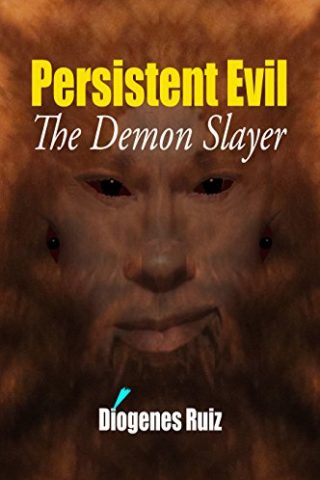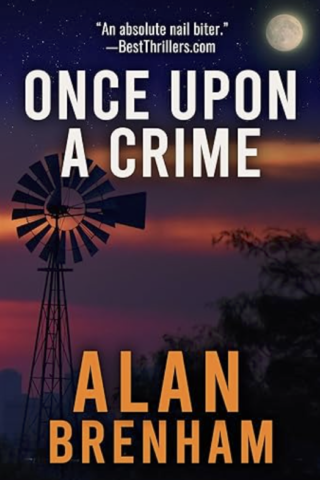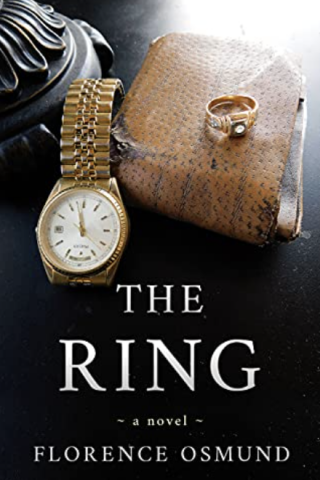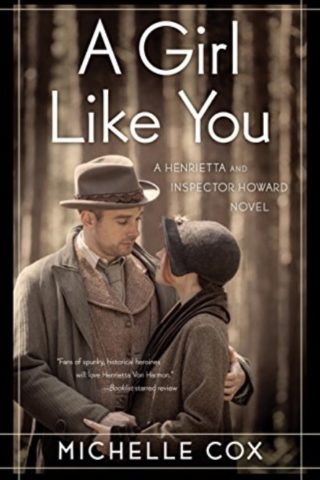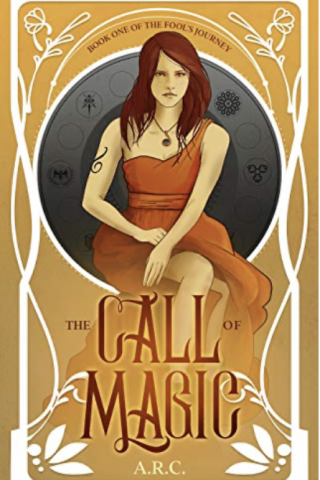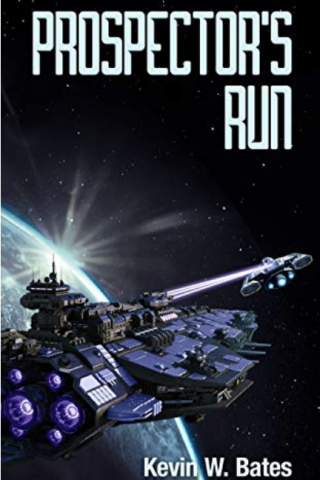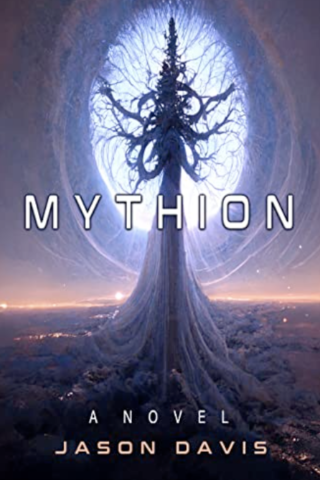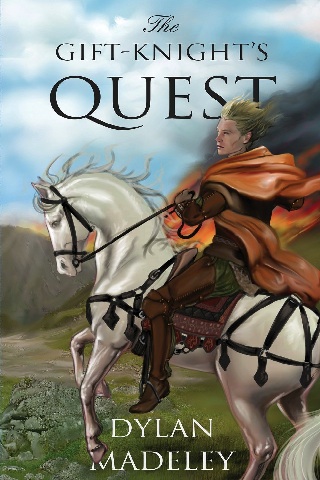
Description:
“Chandra had yet to fathom why Jonnecht could not have lived and ruled for many long years, or why it was so urgent that she ascend immediately.”
Chandra never asked to rule Kensrik, but fate took a strange course. Known as a usurper and sorceress by most and traumatised by all that has transpired, she is forced to make use of the few loyal allies she has in order to hold together her restless empire. In an attempt to identify and defeat the conspirators who inadvertently landed her in power, Chandra risks putting the lives of many in mortal danger, as well as her own.
Derek is an aimless wanderer – the youngest in a lineage that has long fallen from nobility. He finds himself summoned by tradition to serve a family historically considered his bitter enemy. As he journeys down the same path a fateful ancestor once travelled, he struggles with personal demons and begins to reconsider his loyalty to the mission.
Duke Lenn found one true cause in love and it cost him everything. His legacy shaped the present in which Chandra and Derek find themselves. Now their choice will shape the future of Kensrik…
The Gift-Knight’s Quest is set in a new and vividly imagined world, written with delicate prose that will allow the reader to explore with their imagination. Inspired by authors such as Michael Moorcock, J. G. Ballard and Roger Zelazny, it will appeal to fans of fantasy and historical fiction.

Dylan Madeley
e x c e r p t
Chapter One
Derek urged his ride up the path as fast as the horse would go. He so rarely had the luxury of feeling this free that he felt the pain of the brisk wind against his cheeks as a joy.
Three distant figures gave chase but Derek had become aware of them long before they had a chance to catch up. His horse was better than any of theirs, so the pursuers had no hope of catching him that day. He loved that despite their best efforts, they could not stop him, not now. He suspected that if they knew where he was going, they would give up for the night. If it was not yet clear to them, he expected it should be soon.
He urged the horse on despite these confident assumptions. The path would curve around a slight hill. When it did, looking over his shoulder would no longer reveal whether the riders were closer. They might just want him to think they had given up until he could no longer see them. He could not rely on his ears as the rhythmic pounding of his mount’s hoofs smothered the sound of their distant chase.
This, as the lone warrior knew, left the second escape condition intact: they knew where he was going and they were not in a hurry to follow him so close to dusk. He knew that would not prevent them from resuming pursuit in the morning. He resolved to worry about that when it was time.
The journey brought him amidst the decaying remnants of the abandoned capital, on a gravel road hastily constructed from the ruined stone buildings and architecture next to it. The place was crowned by a crumbling shell of a keep at the top of a hill. That same road was one merchants used frequently as it hooked north toward a neighbouring country, but Derek would not flee that far. He intended to stay in the ruins.
The people of his homeland worried about ghosts because they so valued their history. Both their greatest pride and their greatest agony were to be found in history. It was a small leap to suppose that what haunted the minds of a culture could manifest physically.
The ruined city at dusk revealed an old power long fallen. It resonated with all the bitterness and inhumanity and injustice surrounding that fall.
Derek hoped for ghosts. Perhaps they could give him advice. Would his own ancestors not help him if they had the chance?
He tried to squeeze more speed out of his mount for another reason. From his side of the hill, the sun appeared to be sinking fast. He fully expected to have to tie the horse at some clever place reasonably close to the road and make the rest of the uphill journey on foot. He did not want to find his way around the ruins on a cloudy night. He would not call attention to himself with a torch, in the rare case any thieves braved the city grounds.
If he made it inside the keep, though, he would count on being safe. Even thieves could be superstitious, or at least worried about the floor giving out from beneath them.
The buildings ringing the keep maintained a vigil despite the ravages of time. Windows and doorways stared at him like empty eye sockets of skulls. Some roofs had caved in, but the stone buildings seemed too sturdy even after abandonment to fall apart from neglect alone; the elements had help. Even intact sections showed signs of battery, evidence of an empire’s collapse. Road-workers hardly added to this condition: they would only desecrate the place insofar as they rearranged loose stone nearest to the roads and broke it down to size with their tools.
He dismounted at a bend of road that seemed reasonably close to the keep. Then he led the horse as far off the path as he would slow himself to manage, stopping at a series of walls and partially intact roofs that would work as a stable for one night.
There was an old road which forked away from the new, and it would have brought him closer, but to trust the horse on that decaying masonry felt careless even to one who would explore an abandoned keep alone.
Derek continued up the hill, trying not to let the spectacle of his ancestors’ home distract him from any lurking pitfalls or loose stair-stones. Any bodies within sight of the road had been buried by workers decades ago, but the deeper he got into the ruins, the more he expected to meet a pile of bones which sat outside the workers’ purview.
Society broke down here, once. Sense and civility had failed. Derek knew that before he ever set eyes on the place; the world knew. Some of them even considered it a triumph.
Derek, of all people, knew best. His father would have it no other way.
*
It was his father Emeric, in fact, who inspired him to spend his meagre savings on a horse Derek knew well from military training, and on light supplies for a journey.
It was not the sort of journey for which Emeric wished, but one for which Derek felt a strong need.
“You’re a Wancyek, and you’ve no political ambitions. You’re in good standing, fairly handsome, and wasting your time as far as I can tell. How much longer will you wait for the city guard to give you a job?” His father recited a long-standing complaint.
Derek stared wearily at his father. Emeric was a woodsman who retired far earlier than expected due to a permanent injury to his leg, and who only ever cut wood for the oven at home anymore. That gave the aging and frustrated man plenty of spare time to berate Derek for doing nothing conducive to vicarious living, even if his son’s peace-time pay and scrapings from odd jobs paid most of the way for the household.
Derek replied as if to some abstraction of pure reason, too well-rehearsed to think any argument worked on his father. On the other hand, his father might consider lack of response as a sort of victory. It was an old game, often played but never won.
“By the time I could be eligible to sit on the Council, let alone be Chairman, I might nearly be your age. You know Plains politics are about waiting for a successive line of people to die so that one can climb the ranks. It’s how they weed all the impatient and aggressive men out so we can be governed peacefully.” Derek said.
“You think nobody would step aside for a Wancyek?” Emeric raised a berating finger. “This was our land once, boy. We weren’t always woodcutters or farmers.”
But Derek knew what his father conveniently forgot. They were woodcutters and farmers so as not to threaten a newer political order. One with ambivalent feelings about Wancyeks. They appreciated his most famous ancestor, but they felt that the poor governance of that ancestor’s uncle had been their ruin. The Plains seemed quite done with being ruled by Wancyeks at the time, and the remaining Wancyeks were satisfied with being left alone.
Derek felt no wherewithal to bring that up. What was the use?
Emeric continued: “We bloodied up and chastened that vindictive Kensrikan bastard Jonnecht, bad enough that his descendants can still feel it. And we’re still here to taunt them with our survival. It’s why they never picked a fight since.”
“That, and they have better things to do than kill woodcutters and farmers. Like run the biggest empire in the world.” Derek replied, adding that last part just to see if steam would come out of his father’s ears.
Emeric never talked about his father or grandfather. Derek figured it had to be their acceptance of a hard-working commoner life which put Emeric off. Why was Emeric the odd generation out that dreamed of revenge? And why did Derek have to be his son?
Derek’s mother Irena sighed as she went about her home upkeep, one thing she could swear her husband ought to be able to do much easier than cutting fuel. She did not recall one single honest effort from him in this regard.
“People step aside from you, Emeric,” she mumbled to herself, “the same way they give beggars a wide berth.”
Sometimes it was like she had two sons, one of them freakishly old. The younger of the two might make a better friend, but he was always so distant…
“I will never get why you raised me on adventurous stories, then began to insist I stay put, father. I can’t do opposite things that you want.” Derek said, oblivious to his mother’s quiet moral support.
“Well I’ve given you all the time in your life to make something of yourself. You just slouch around town when you’re not back to training for brush-ups.” His father spat back with a mocking shrug. “Hey, even a wizened gent like me has to compromise. If you want to just sit around then there’s important things you could do with your buttocks planted.”
“Where would I go?” Derek gestured with exasperation. “To do what? Do you ever pay attention to how things are today, instead of a century and a half ago? There hasn’t been a battle to hear about since the Succession War in the east, and only if you include street scuffles and royal fratricide in your definition of war. There is nowhere to go. You would think if there was, I would head there straight away.”
“There’s the whole bloody North.” Emeric replied, licking his lips as if the North must taste good. “Untamed and unpredictable. That part of history might not be directly in your blood, but they were family. Your name could mean something to them.”
Derek rolled his eyes. Yes, the old war to which Emeric referred was commanded by a Wancyek; one on a far bough of the family tree. That history belonged to the Dawn Frontier and its people. The pride of this family fought and died in a different conflict altogether. Derek was sure that the Frontier broke away from the old empire for a reason, likely involving no fondness for those who used to rule them.
“It’s more farms and woodlots up there, from what I hear.” Derek replied.
“Don’t be stupid. They’ll never run out of North, nor of bandits to fight. Not in your lifetime, probably. But I guess you missed that wagon some years back, didn’t you? I never hear calls for volunteers anymore.” Emeric recalled.
“We’ve been through this. They said I was young; inexperienced. I was nineteen after all.”
“You could’ve lied better. If you really wanted it you’d get it. You’re a Wancyek. In your blood is a great sorcery, born of unmatched honour.”
Derek stood up abruptly. “And honorable lineage makes me an expert liar, then? I think I’ve heard enough of the same from you.”
Emeric grinned sardonically and gestured at the now vacant chair. “What choice have you got then? You say there’s nowhere to go. Sit back down. It’s something you’re skilled at anyway.”
“Matter of fact, I can think of somewhere. You might know where. I think I’ve already got all I need. Fancy that? Are you going to be proud?” Derek made for the door, briefly feeling to make sure his money belt was stocked at the end of this premeditated move.
The exit was on his side of the room, and the curmudgeon couldn’t move fast enough to catch him if he tried.
His mother stayed out of the way. She had no personal interest in authority over her son or husband on any matter. After years of frustration, she had no hope but to live from day to day. She did look forward to some act shutting Emeric up for a while.
“Derek!” The shout was cut off by a slamming door. The feeble man stole a hard glance at his wife through the kitchen’s broad doorway.
“Your son’s running off, you know.” He said to Irena.
“I thought you both agreed he has nowhere to go.” She observed.
“He’s got to mean the old capital. Think of how long it takes to get there. He’s lucky if he’ll have any daylight left by then.” Emeric remembered having brought Derek there once, in much happier times.
Irena put down what she was doing for a moment. “D’you remember two years back when you said to me, ‘The boy’s a man, let him go where he wants’? It was difficult to accept, but I agreed. Try agreeing with yourself.”
“That lazy boy can’t last anywhere without structure, or he’d be out of the army.” He gestured pejoratively. “Some mother you are, picking up after him all the time, cooking his food, not saying a word when he gets into trouble, and not batting an eye when he decides to spend the night with ghosts. If he stays with them for good, what then?”
“Do you mean the glorious ghosts whose life-stories you filled his head with as a child? I don’t wonder why they look like better company to him than you.” She replied sharply. “Look how far this has gone, Emeric. Look how far you have pushed it, and do not blame me for allowing you to try motivating him your way. You told me to let you handle it. How is getting into trouble any different than what you have always wanted for him?”
“Ach.” The old man spat as he rummaged around for a walking stick and made for the door.
“As for your earlier point,” she pondered aloud, “I can always stop being a bad mother for you, too. It would set an example. I have to say that between the two of you, he does far more to earn what I do for him. Count out the money he adds to the pot next time he does so. Would you rather drag yourself around begging for alms?”
Emeric stared at her. He could not immediately come up with a response.
“And you want to hurry him out the door. Yet it bothers you that he has left.” She added in observation.
He raised his walking stick. “Do you see this? Do you know how much it hurts me to move around? It’s worth it to get my son back, but I hope you appreciate that the next time you try to guilt me about not working. You don’t have to feel the same pain.”
She blinked. “You’re right, and I’m sorry for that. Just realize that not everyone’s pain is so visible. And what does it accomplish to wound the spirit of our son?”
Emeric blustered out the door. He wanted to yell, and he knew it would have meant nothing.
*
Derek was fortunate to be able to find his way around. There was no suitable torch left inside the keep, but just enough of the day’s dwindling light leaked into the castle’s lower levels that he could move with confidence. Where his path fell into shadow, he trusted careful hands and feet more than his eyes.
The entrance was long left open, the door long since smashed and burned, any splinters long ago rotted away. The main hall was barren and dull, though burn marks here and there would have stood out prominently in better light.
He immediately assessed and ascended the room’s biggest feature, a wide set of stairs leading to the upper floor and its halls. He stayed close to the walls while he ascended, guessing that the parts of the stairs closest to walls were most likely to be intact.
He tried some other halls and stairwells only to be met by blockages and caved-in sections. After some backtracking, he found and settled for the highest room in the building that was accessible without needing to climb precarious masonry in dim lighting.
This was an empty room of exposed stone, anything of value having been stripped from it long ago. Soot stains on the floor, walls, and ceiling suggested what fate befell anything flammable that had been left behind. The lack of damp suggested that the roof and ceiling still held strong against any rain, so he would at least be dry for the night. He laid his sleeping-sack down.
The window frame had eroded, but he could still tell it was intended as a window. The opening faced south-east, toward South Etrouk, and farther away, ancient rival Kensrik. No part of either other kingdom was close enough to be seen, but there was definitely bad weather in that direction.
He was once told that this room used to be a library. He was only dimly aware of its significance, for recorded history missed much. No ghosts appeared to enlighten him through re-enactment.
*
“I’m riding south with my fellows. You can either ride with me, or stay here. Don’t make it sound like I’m the one facing a choice.”
Duke Lenn Wancyek turned away from his personal friend and advisor, and looked out the window of his personal library. He did this partly to glance in the direction he intended to go. He also did it to look away from Tibor, who sat on the edge of a reader’s couch that had found an entirely different use in recent memory.
Lenn’s athletic frame had once relaxed on those cushions, while Zinnia rose slowly from love, radiant like a bright moon on a clear night. For what she told him, he could have had her arrested; for what she gave him, he wanted to have her titled. He loved no other, nor would he ever. His friend had unwittingly encroached on a lovely memory just by sitting where it happened.
She laughed, perhaps not realizing what a nervous laugh it was, and said: “Leave my people, for whom I do everything, to accept a role which is seen as subordinate to you?”
Lenn sighed. “Well, you know I had to try. Tell me, then, what would you like?”
She paused in the middle of dressing and raised her eyebrows at him. “So this is barter to you? An exchange?”
“Well, hmm.” He fumbled. “Truly sorry. When one is in the business of politics—”
She interrupted, sparing him from further discomfort. “Give no word, don’t warn our oppressors, and you’ve done enough. I thought your discretion would go without saying, or have I misjudged you?”
Lenn smiled. “Fortunately, you’ve—”
“I don’t know what turns in your mind when you get distant like that,” his friend, and the present, intruded again. “I just hope it’s to do with a choice that yes, is yours, and no, you can’t evade: on our throne we’ve a dressed-up servant of the Kenderleys, and you’re the only one who’s not too busy cleaving Northern skulls to do something about it. I can’t think you feel much closeness to your uncle, or you wouldn’t accept such talk against him.”
Lenn turned back to face the man. “My uncle is unfit to rule precisely because he sends no one south. Never lose sight of that. If I take the time and struggle to unseat him first, it may be too late to do what he refuses to do. And would I then be fit to rule, the result having been the same?”
Zinnia’s people had no kings of their own, not any within living memory. Long ago, foreigners made a province of that land. Kingdoms fought for its control, caring nothing for the consent of its inhabitants. The most recent flag was that of the Kenderleys, who won it convincingly before Lenn’s time. Now Zinnia and her allies had declared the independence of their land from all foreign rule, and Lenn had a strong suspicion of how the Kenderleys would respond. Lenn’s uncle, King of Wancyrik, saw no reason to interfere.
“You would undoubtedly be fit.” The man observed. “You never refused to ride south. I can testify to how badly you wish to go there. Can’t you free your own land from tyranny, before you go help people who already seem to have freed theirs? That should be good enough for Wancyrik. It may already be too late to ride to their aid, besides.”
Zinnia smiled enigmatically, like an Etroukan. “You speak well, always, but I wonder how many others like me there have been. And how many were forgotten.”
“Fewer than you would think.” Lenn replied. “And none so memorable. You realize I can’t accept any harm coming to you.”
She balked. “I’m determined to defy the world’s wealthiest and best armed empire, and you want me to be careful about it?”
“I’m saying you shouldn’t end up alone against the world’s angriest ruler. And their army is largest, but not best.” Lenn could accept that the Kenderleys were wealthier, but he refused to consider numbers as pure might. Pride in his people demanded such. The Wancyeks had an international reputation for fierceness and skill on the battlefield.
“No, you don’t get to invade us under the pretext of rescuing us. The memory of my people isn’t that short, and the Wancyek flag isn’t so unfamiliar.” Zinnia shook her head.
She added: “And besides, your uncle wouldn’t turn against his new friends. Am I wrong? But, keep this necklace of mine. I should like to reward you for being a good man.”
“Well, even if it’s good enough for them, that’s not good enough for me.” Lenn said. “And the Kenderleys can’t move such an army so quickly that it would already be too late. But I must leave with my fellows today, of that I’m certain. My uncle isn’t going anywhere, and the way things look, when I return we can always see what little loyalty remains for him among an already restless people.”
With a loud and frustrated grunt, Tibor struck one of the couch cushions. He then rose to his feet.
“In that case, neither of us has a choice. I’ll bring what soldiers I can muster. It’s all I can do to make sure you come back safely.”
Lenn bluffed a smile for his friend, but the smile was shown false by the look of Lenn’s eyes. No matter how many went south, there was no making sure, no safety.


